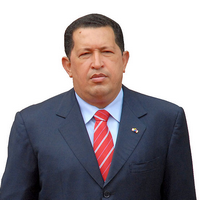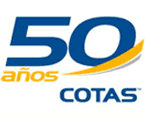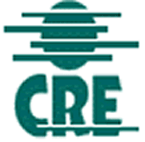World Citizen: The Death of Chavismo – Frida Ghitis / World Politics Review – 17.7.2010
In South America, Bolivia and Ecuador still have presidents who can be termed Chavistas. But even Bolivia’s President Evo Morales, who governs one of the poorest countries in the Western Hemisphere, has seen his approval ratings drop more than 22 percent in the last few months.
La última encuesta – 17.7.2010
Junio: La última encuesta sobre la aprobación del Presidente Evo Morales
Frida Ghitis | Bio | 15 Jul 2010
World Politics Review
When the global economic crisis struck, Venezuelan President Hugo Chávez gloated. The woes of capitalism, he believed, would give a boost to his brand, helping spread Chavismo throughout Latin America. Chávez, the designer of that unique ad hoc blend of personality-driven socialism and nervously semi-free markets, prophesied the imminent collapse of capitalism. He confidently promised his followers that, under his leadership, Venezuela would remain “armor plated” against recession.
Today, capitalism appears to be limping back to life thanks to generous infusions of government funding. The news for Chávez and his followers, on the other hand, looks rather dismal. Not only is the Venezuelan economy sliding down an ever-accelerating spiral to disaster, but Chávez’s philosophy is rapidly losing its appeal. Chávez and a few of his ideological soulmates may remain in power, but Chavismo as an ideology is slowly dying.
In a continent where economic growth and the alleviation of poverty remain pressing needs, the Chavista model has lost its battle for regional primacy to the progressive reform policies developed by Brazil and Chile, where poverty is receding and living standards are climbing.
Pessimism about the prospects for Venezuelan prosperity and for Chávez’s ability to influence the region has become so prevalent that when the Cuban government recently agreed to free a number of political prisoners, some speculated that Havana was trying to improve ties with the U.S. in order to “hedge its geostrategic bets.”
Other key Chávez allies have become pariahs among their own people, and the Venezuelan president’s efforts to influence elections are producing the opposite of their intended result. When a Colombian presidential candidate said he admired Chávez, he was forced to rephrase his praise amid an upswelling of criticism, and subsequently lost ground in the polls. Meanwhile, Juan Manuel Santos, the Colombian candidate Chávez fulminated against, went on to win a landslide victory.
Chavismo, which many once believed would bring lasting relief to the poor, is becoming synonymous with power-hungry and socially divisive presidencies, heavy-handed and destructive government intervention, and brazen assaults on democracy.
The Chavista model is a combination of economic and political policies with very clear characteristics. On the political side, Chavismo aims to maintain the appearance of democracy, critical to preserving the legitimacy of the regime. But while the shell of democratic institutions generally remains in place, their ability to function in support of pluralism is nullified by stacking all the branches and all the institutions of government with individuals subservient to the president. Gradually, democratic institutions and rules are subverted until the president is allowed to remain in power, at least in theory, as long as he wishes.
On the economic front, the model relies on the nationalization of natural resources and the enterprises that monetize them as the principal source of funding for generous government subsidies of the poor. Beyond that, the government cherry picks whole industries and individual businesses to nationalize. The choice of which business to expropriate is based on a combination of its strategic importance, its political influence, and the personal animosity the president feels toward its owners. The government generally allows free enterprise to function, although it frequently makes ostentatious displays of pressuring businessmen to lower prices or “stop hoarding,” in an effort to bolster populist support. This adds to the dangerous polarization of society in every country that Chavista governments have taken power, creating the potential for violence.
The Chavista model has been followed, to different degrees, in countries where close allies of the Venezuelan president have taken the top office, including Nicaragua, Bolivia, and Ecuador.
One reason Chavismo has stopped gaining new converts is that the movement’s funding stream — Venezuela’s oil-fueled cash reserves — has started running short. For years, Chávez’s largesse has helped finance the economies of his allies, as well as the economies of leaders that Chávez was courting to join the movement. Chavismo has always relied on the support of the poor to maintain its legitimacy. That support required cash for desperately needed social programs. But Venezuela’s economic crisis is making it increasingly difficult for Chávez to boost spending for the benefit of other politicians.
The extent of Venezuela’s economic problems is staggering — and most of it can be directly linked to Chávez’s policies. The economy is groaning under the weight of soaring inflation, net currency outflows, extremely high rates of crime, high government spending, and falling production. And many of the problems are devastating the poor, Chávez’s base. Inflation in May reached a new record — more than 5 percent for the month — with food costs up more than 11 percent. Annual inflation, according to conservative government figures, has topped 30 percent. The economy is shrinking rapidly, even as much of Latin America returns to strong growth. In 2009, foreign direct investment totaled negative $3.1 billion, down from a positive $349 million in 2008. That means businesses are taking money out of Venezuela at a breath-taking pace. It also means there is a shortage of dollars, which has sent the local currency plunging in the black market, adding to inflation.
Nobody wants to invest in Venezuela because the government can decide to take over their business on a presidential whim. And if they challenge the president, as some — including some former friends — have done, they could end up charged with a crime.
Guillermo Zuloaga, head of Globovision, the last remaining news outlet critical of the president, has fled the country after being charged with bogus crimes. He says that Chávez has created a “reign of terror.”
Between energy shortages, loss of jobs, out-of-control crime, and no prospects for economic recovery any time soon, Chávez’s once-passionate support among the poor is gradually disappearing. A recent poll showed that 64 percent of Venezuelans don’t want him to stay in power beyond this term, even though he has declared his wish — and his intention — to stay in power until 2030.
Other Chavista regimes are facing even angrier electorates. Nicaragua’s President Daniel Ortega has seen his support plummet to about 20 percent. The former Sandinista guerrilla fighter is twisting himself in unflattering knots to keep his grip on power. A recent maneuver had the Supreme Court declare that term limits don’t apply to him. Antipathy towards the former rebel leader is growing even among his old supporters, who are joining forces with the opposition to resist the president. A group of former Sandinistas called the Movement Against Re-election and Fraud says Ortega is trying to create a “totalitarian regime,” and they vow to stop him. Their slogan — “If there is re-election, there will be insurrection” — foreshadows violence if the Nicaraguan president manages to overcome the muscular push against him.
Ortega, whose approval ratings are the lowest in Latin America, has become Chávez’s last remaining ally in Central America, following the overthrow of Honduran President Manuel Zelaya. Zelaya’s presidency ended when his opponents claimed he was following in Chávez’s footsteps by trying to extend his time in office through illegal maneuvers.
In South America, Bolivia and Ecuador still have presidents who can be termed Chavistas. But even Bolivia’s President Evo Morales, who governs one of the poorest countries in the Western Hemisphere, has seen his approval ratings drop more than 22 percent in the last few months.
Despite the depth of Venezuela’s economic problems, it may take many years before Chávez and other Chavista governments in Latin America take that final step into the pages of history. But there is little doubt that the ideological power of Hugo Chávez and his followers is now past its peak. What remains unclear is how hard they will fight to remain in office as opposition to their rule intensifies.
Frida Ghitis is an independent commentator on world affairs and a World Politics Review contributing editor. Her weekly column, World Citizen, appears every Thursday.
Photo: Venezuelan President Hugo Chávez, June 27, 2008 (Agencia Brasil photo by Marcello Casal Jr., licensed under the Creative Commons 2.5 Attribution Brazil).
http://www.worldpoliticsreview.com/articles/6041/world-citizen-the-death-of-chavismo
















